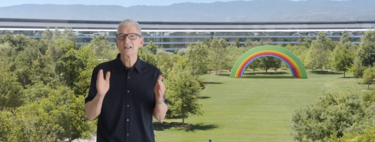Some books come along at the right moment to make you rethink what you thought you knew. Apple in China: The Capture of the World’s Greatest Company, recently published by Patrick McGee, is one of them.
Its central thesis presents an uncomfortable truth: Apple didn’t conquer China. China conquered Apple.
For years, we’ve viewed this relationship from a Western perspective—neither Chinese nor fully American. Apple brought innovation, jobs, and modernity to China. It’s the classic Silicon Valley story of exporting democratic values through trade. However, McGee turns that narrative on its head. When he does, everything takes on a different meaning—more uncomfortable, more real.
March 15, 2013, marked the moment Apple understood the rules. After a campaign orchestrated by Chinese state television, Apple CEO Tim Cook published an apology letter in Mandarin regarding iPhone warranty policies.
This symbolic gesture revealed the true nature of power in that relationship: The CEO of the world’s most valuable company publicly apologized to an authoritarian regime.
- From a Western perspective, it felt humiliating.
- From a Chinese perspective, however, it was probably logical—a multinational company adapting to local customer service norms.
The trap was perfect because Apple had fallen in love with something only China could offer: the ability to scale production without limits. Going from zero to manufacturing 200 million iPhones per year required an impossible level of industrial coordination anywhere else.
Apple committed to the project wholeheartedly. It trained 28 million Chinese workers, invested $7.3 billion in equipment for other factories and sent its best engineers. McGee draws a striking comparison:
- The U.S. launched the CHIPS Act with $52 billion spread over four years.
- Meanwhile, Apple invested $55 billion a year in China alone.
This private company invests more in one country than the U.S. government’s most significant industrial effort.
However, Apple built that cathedral without understanding the terrain on which it stood. Not a single senior executive resides permanently in China, and the company doesn’t have a diplomatic strategy or contingency plan.
While Apple revealed its industrial secrets, Beijing didn’t cheat; it applied state capitalism strategically. It used its advantages—a giant market and industrial capacity—to obtain technology transfer and know-how it could exploit. This doesn’t differ much from what the U.S. does with TikTok or Huawei.
Over the years, the balance shifted—silently. Apple no longer imposed conditions:
- China restricted certain content.
- It required mandatory data storage on local servers managed by government-linked companies.
- It blocked apps such as The New York Times and any VPN.
Apple adapted, one by one, without fuss or public protest. What was the alternative? Losing access to 20% of its revenue and dismantling a supply chain that took decades to perfect. No CEO would survive a board meeting after proposing such an idea.
However, the book has one major weakness: Its sources are deeply Western.
- McGee bases his narrative primarily on internal Apple documents and testimonies from American executives.
- There’s hardly any Chinese perspective. We don’t know Beijing’s true thoughts, internal strategy or how it views this relationship.
It’s like telling the story of the Cold War using only Pentagon files. Chinese workers appear more as statistical resources than individuals with their own destinies.
Therein lies the paradox. Instead of transforming China, China ended up transforming Apple. The most controversial decisions of the Cook era—censorship, data sharing, and silence in the face of repression—are the calculated price of operating in the world’s largest consumer market: 1.4 billion people. It’s a price Apple continues to pay every quarter.
Cook inherited an Apple admired for its creative independence. His legacy includes boosting finances, expanding into services, and diversifying its catalog vertically and horizontally. However, he will also leave behind an Apple cornered by its logistical dependencies.
Apple is trying to expand into India and Vietnam, but the structural damage has already been done. This isn’t only because most of its supply chain remains in China, but also because Apple has learned to bend. In every market, someone else dictates the terms—especially when there are no alternatives.
Apple in China isn’t a book about Apple. It’s a book about power in the global age. It’s about how a company that believed product excellence guaranteed strategic independence discovered that, in geopolitics, margins don’t vote.
There’s more to the iPhone in our pockets than technological innovation. There are also calculated concessions and silent adaptations—a rebalancing of power so gradual that it was barely noticeable until it became irreversible.
If the Chinese market could redefine the rules for Apple, then what multinational company can truly control its destiny?
Image | Soheb Zaidi (Unsplash)
Related | Apple Has Reportedly Set a Date for the Release of Its AI-Powered Siri: Spring 2026



